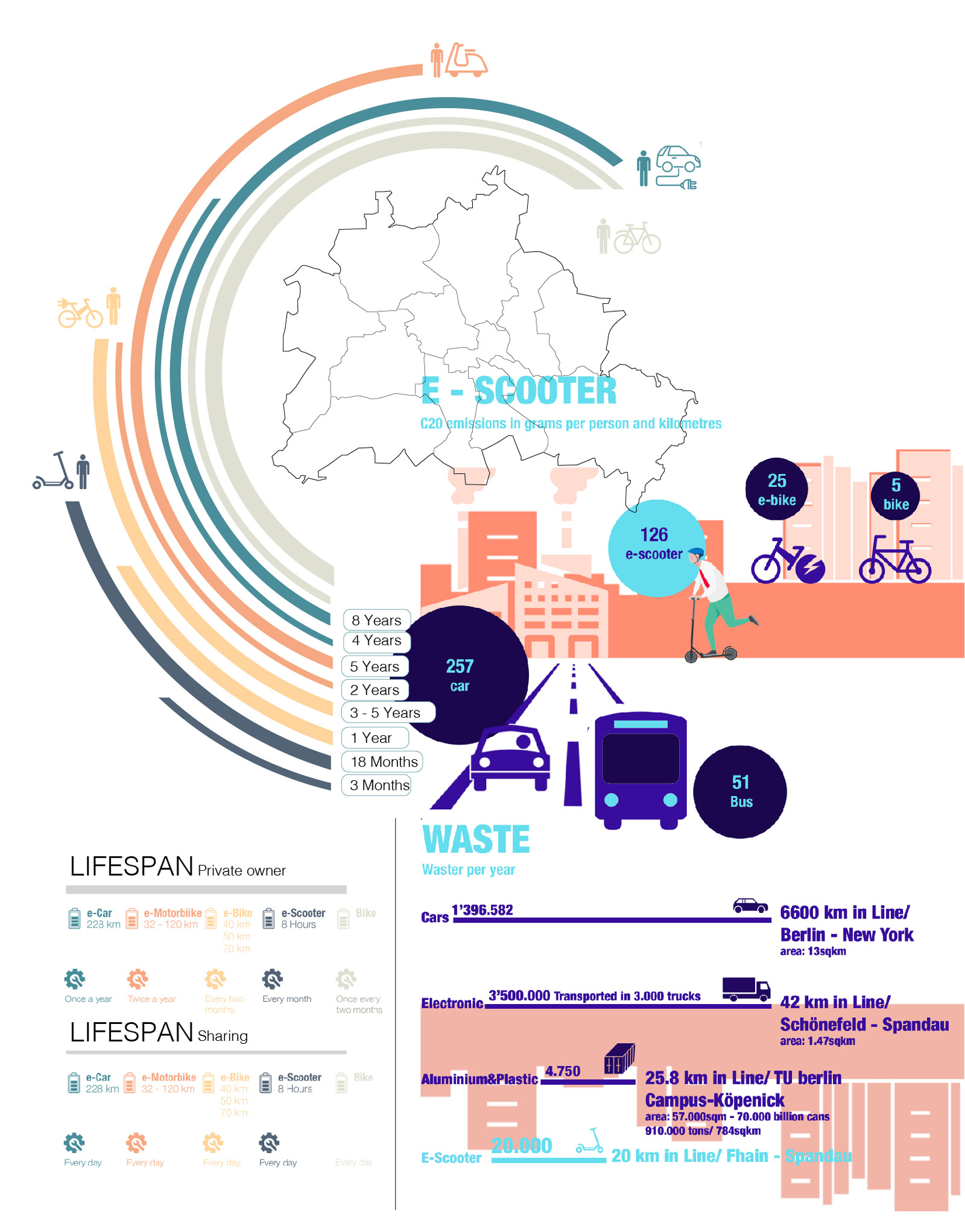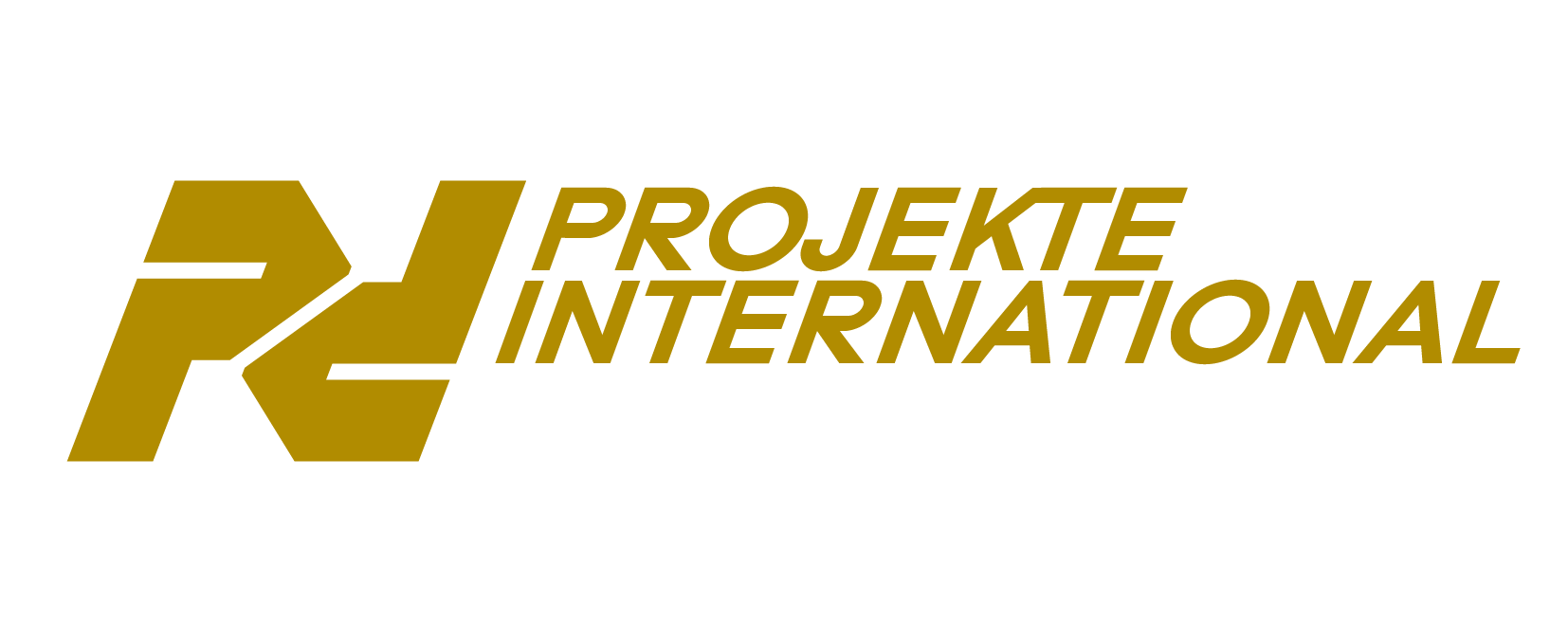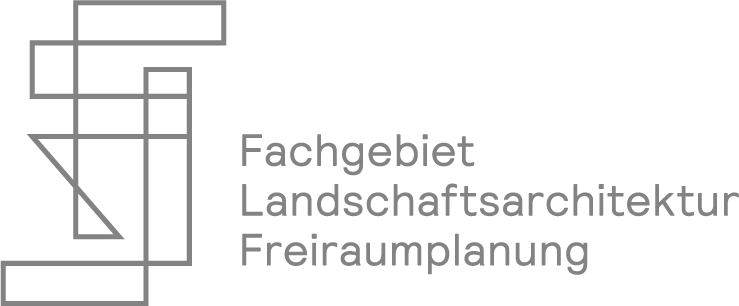MICROARTICLE #Waste & Materials
e-Mobility Gone Rogue
By: XXX
MICROARTICLE Waste & Materials
Wissensstadt Berlin 2021
Published on June 26, 2021
Few things polarised urban dwellers as much as the arrival of an armada of scooters did. Promising a fun way to save our climate, scooters in various colours popped up overnight in city centers and locations carefully chosen by data analysis. Sidewalks were filled with their clumsy users. Soon thereafter, the fighting started and not much later, scooters dumped in rivers and ditches became a common sight. From the ashes of a short-lived hype, we address two main issues with e-mobility:
1. They are a composite nightmare: for an e-scooter or e-car to properly function, they need metres (or kilometres) of copper wire. Copper easily travels 15,000 km through multiple countries while it’s being refined, molded, installed and then exported in the scooter. Now consider the journeys of the plastic, metal, rubber, electronic chips and multiply this by CO2 output...
2. The lifespan of scooters is as short as the companies that operate them. Scooters end up in a repair workshop after just 3 months.
So, is sustainable e-mobility possible? Is it compatible with growth & profit? We shall see...
BB2040
[EN] Berlin Brandenburg 2040 was initiated by the Habitat Unit in cooperation with Projekte International and provides an open stage and platform for multiple contributions of departments and students of the Technical University Berlin and beyond. The project is funded by the Robert Bosch Foundation.
[DE] Berlin Brandenburg 2040 wurde initiiert von der Habitat Unit in Kooperation mit Projekte International und bietet eine offene Plattform für Beiträge von Fachgebieten und Studierenden der Technischen Universität Berlin und darüberhinaus. Das Projekt wird von der Robert Bosch Stiftung gefördert.









